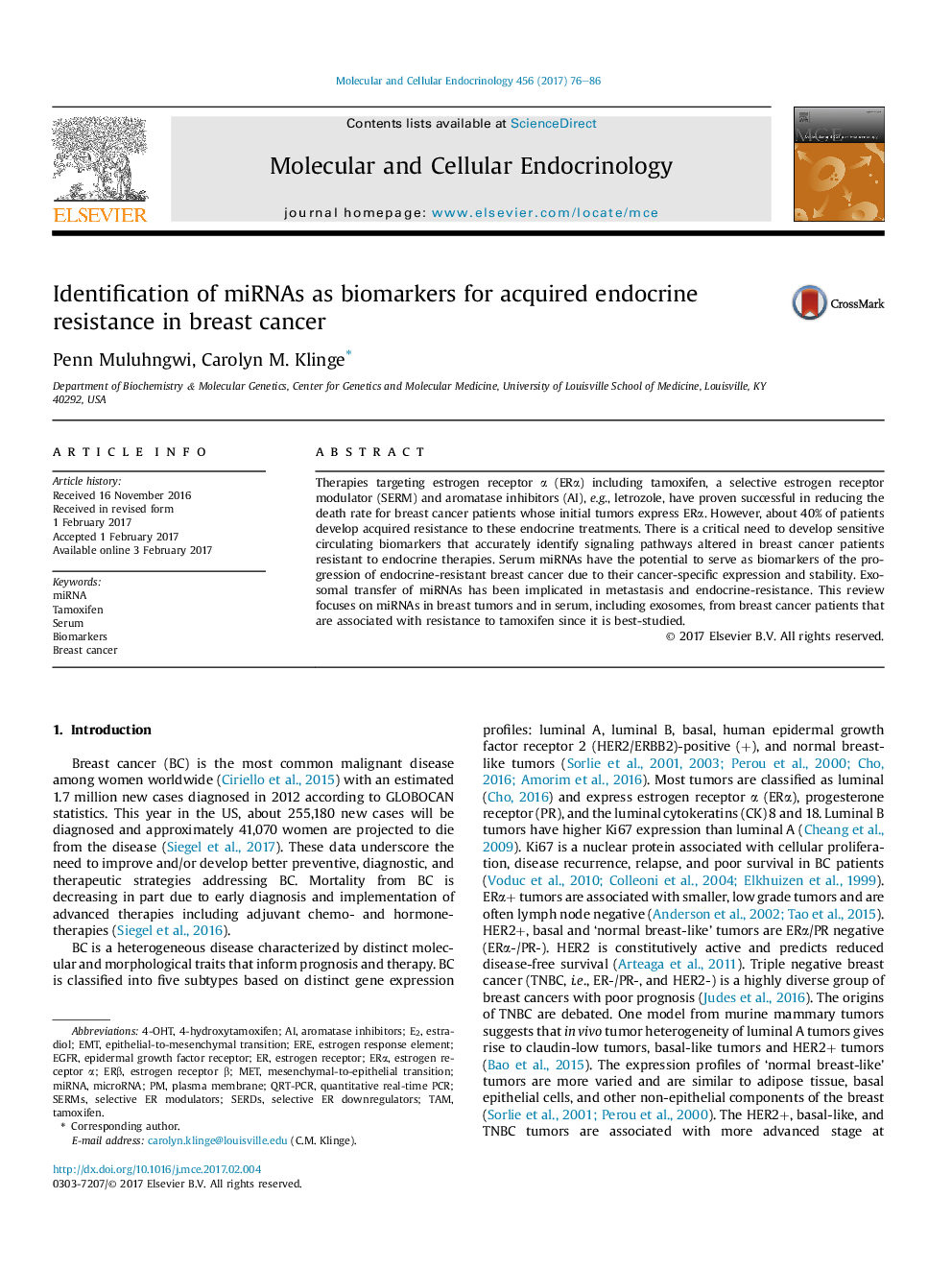| Article ID | Journal | Published Year | Pages | File Type |
|---|---|---|---|---|
| 5534002 | Molecular and Cellular Endocrinology | 2017 | 11 Pages |
â¢miRNAs dysregulated in breast cancer may serve as therapeutic response biomarkers.â¢miRNAs in blood, serum, and plasma reflect those in breast tumors.â¢Exosomal miRNAs may be biomarkers of endocrine therapy responses.â¢miRNAs from exosomes may stimulate tumor progression/metastasis.
Therapies targeting estrogen receptor α (ERα) including tamoxifen, a selective estrogen receptor modulator (SERM) and aromatase inhibitors (AI), e.g., letrozole, have proven successful in reducing the death rate for breast cancer patients whose initial tumors express ERα. However, about 40% of patients develop acquired resistance to these endocrine treatments. There is a critical need to develop sensitive circulating biomarkers that accurately identify signaling pathways altered in breast cancer patients resistant to endocrine therapies. Serum miRNAs have the potential to serve as biomarkers of the progression of endocrine-resistant breast cancer due to their cancer-specific expression and stability. Exosomal transfer of miRNAs has been implicated in metastasis and endocrine-resistance. This review focuses on miRNAs in breast tumors and in serum, including exosomes, from breast cancer patients that are associated with resistance to tamoxifen since it is best-studied.
